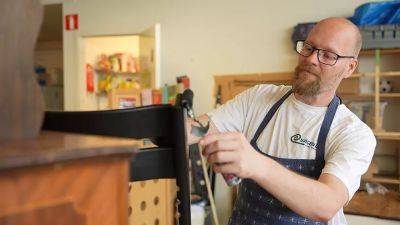Why did Sweden sterilise up to 30,000 people against their will in the cause of eugenics?
Kjell Sundstedt’s family had never talked about the darkest moment in their history.
“It was a secret no one dared to talk about. Society was ashamed that people had been forced to be sterilised in Sweden”, says the 71-year-old filmmaker.
He had not even discussed it with his family, so when Sundstedt discovered that four of his uncles had been forcibly sterilised he was shocked.
“They were sterilised because they were poor. Their crime was poverty”, he adds.
Sweden set up a eugenics plan, grounded in the science of racial biology, between 1934 and 1976. The first country in Europe to later abolish forced sterilisation was carrying out a policy under which between 20,000 and 33,000 Swedes were forced to be sterilised.
Victims were young and mostly female, judged to be ‘feeble-minded’, ‘rebellious’ or ‘mixed race’. Swedish authorities believed they were creating a society that would be the envy of the world.
“They wanted to get rid of a certain type of people: The weaker ones”, says Sundstedt.
Although Sundstedt’s mother managed to escape to the Swedish capital and avoid being sterilised, her sister Maj-Britt wasn’t so lucky.
Their mother died when Maj-Britt was very young. As their family was poor, the child protection services from the municipality intervened and asked her and the younger siblings who still lived at home to undergo an IQ test.
“During this period they believed a lot in IQ tests, intelligence was very important for them”, says Sundstedt. These tests mainly consisted of knowledge-based questions and as Maj-Britt and her brothers were poor they couldn’t answer them because they didn’t attend school regularly.
She scored under the threshold of ‘normal intelligence’ and therefore was classified as ‘feeble minded’. As







